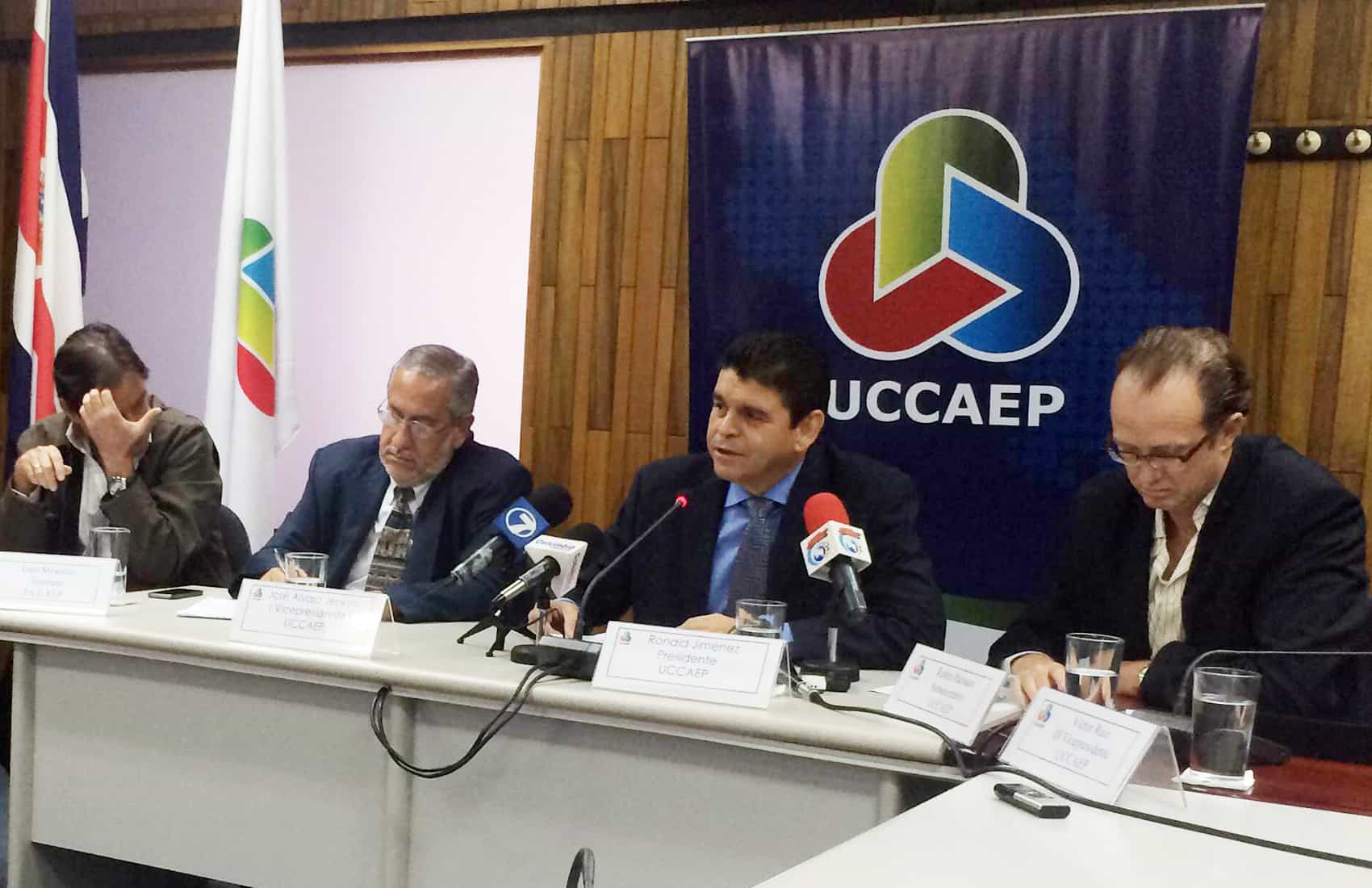Leaders of the Costa Rican Union of Private Sector Chambers and Associations (UCCAEP) said that a series of decisions made by the new administration of President Luis Guillermo Solís regarding employment, energy, public spending and legal certainty are affecting the country’s competitiveness.
UCCAEP board member Luis Mesalles said it is impossible for the private sector to create quality jobs in the current economic environment.
Employers also highlighted inconsistencies in government decisions on energy, saying recent increases in electricity rates will cause a drop in investment and the relocation of foreign companies to other countries.
UCCAEP President Rónald Jiménez said administration decisions are sending mixed signals that affect confidence.
“If there is no confidence, there will be no investment. If there is no investment, there will be no jobs, which clearly is a contradiction of the administration’s goals and their actions,” he said.
Business leaders also critized the government’s “inability” to lower the fiscal deficit, a promise Solís made at the beginning of his administration in May. The president at the time said he would seek to lower public spending as a way to control the deficit, but UCCAEP members believe this has not happened. According to estimates by the Central Bank, the government’s deficit this year will reach 6 percent of gross domestic product, the region’s second highest behind Honduras’ 7.7 percent.
During his campaign, Solís promised to cut public spending, but the increase in the fiscal deficit and a wage increase approved for the public sector for the second half of this year worries UCCAEP leaders.
Entrepreneurs believe fiscal deficit reduction is essential to improving government efficiency. They also want to see the “elimination of all abusive privileges for bureaucrats, such as unreasonably high pensions.”
Other important goals, they said, should be curbing the growth of public spending – especially salaries – and combating tax evasion. The business sector challenged Solís to target informal sectors of the economy instead of “chasing” companies that report low or no profits. Alan Saborío, UCCAEP’s Fiscal Commission coordinator, said the commission is still waiting for a comprehensive bill to reform the sales tax and convert it to a value added tax.
The recent lifting of a presidential veto that granted a group of vendors the right to use a public street in downtown San José also worries employers, who said they are concerned about legal clarity issues.
UCCAEP in coming days will file a complaint at the Constitutional Chamber of the Supreme Court to challenge a Solís decree that allowed vendors to keep their businesses on the street in front of the National Museum.
“This administration is not focused on actions needed to reduce the fiscal deficit. Instead, it has focused on a few bills that are not going to solve any serious problems, but rather make the situation harder for everyone,” Mesalles said.
President Solís addressed UCCAEP’s statements by saying only that recently he has held several meetings with other business groups. He added that he values all opinions and considers UCCAEP’s points of view as a “permanent reference.” Solís, however, lamented the group’s claims that he is not effectively communicating with them, adding that he is open to improving the situation.






